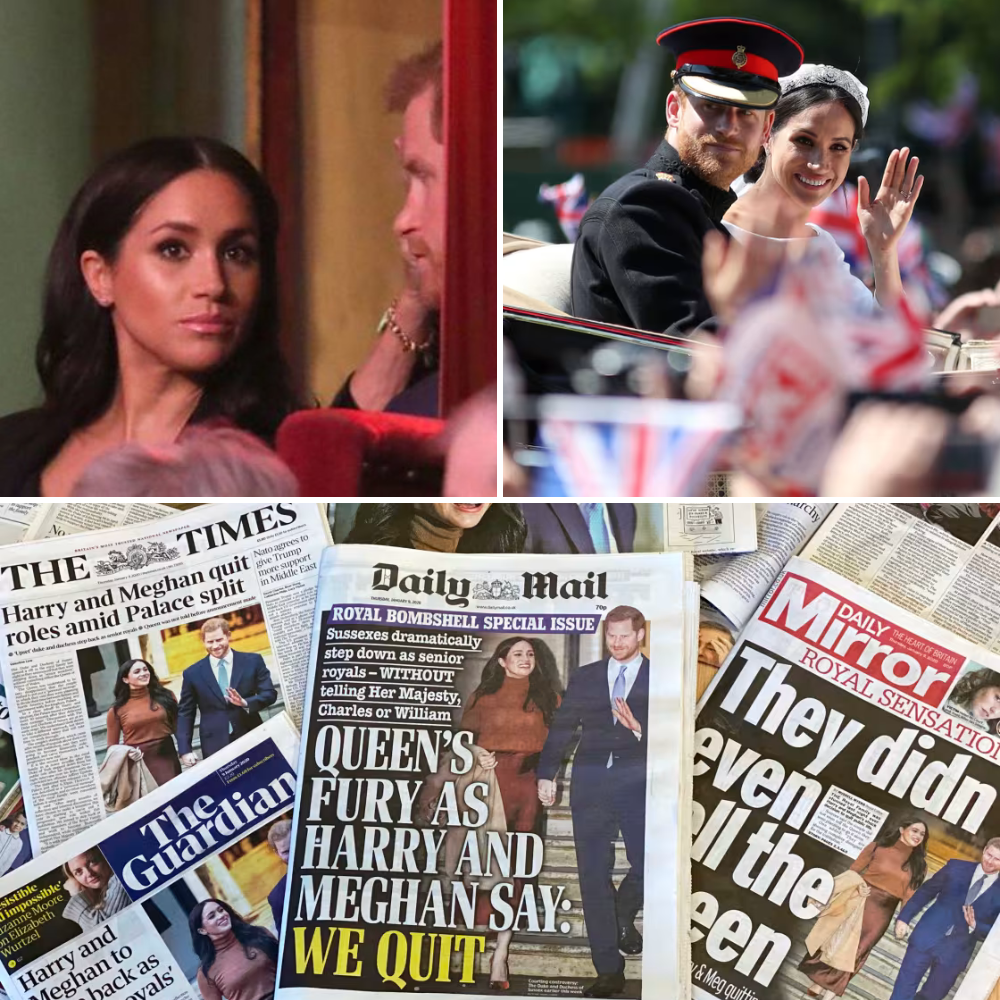
In a revelation that has reignited debates around the British royal family, recently unsealed court documents have confirmed what Meghan Markle long hinted at in interviews and public appearances: she felt “unprotected” by the royal institution while pregnant with her first child, Archie. The documents, part of a 2020 legal case between the Duchess of Sussex and a British tabloid, offer a rare and unfiltered look into the emotional struggles she endured behind palace walls.
This revelation, while not entirely new, is now confirmed in black and white—a written admission in court filings that adds weight to her earlier public claims and interviews, particularly the bombshell 2021 Oprah Winfrey interview. Meghan’s legal team stated clearly that she experienced “tremendous emotional distress and damage to her mental health,” in part because of the Palace’s refusal to allow her to defend herself against negative press coverage.
So what exactly happened during Meghan Markle’s pregnancy, and why is this revelation sending shockwaves through media and monarchy alike? Let’s break it down.
A Controlled Silence: The Royal Protocol That Silenced Meghan
From the moment Meghan Markle joined the royal family, she became the subject of intense media scrutiny. Tabloids dissected her every move, and speculation about her behavior, background, and even her relationship with other royal members ran rampant. But when she became pregnant in late 2018, the pressure and criticism only intensified.
Unlike other royal family members, Meghan was reportedly denied the ability to publicly respond or correct false stories. This silence, she later explained, wasn’t voluntary—it was mandated by the institution. In court documents, her legal representatives stated that she was “prohibited from defending herself against the false and damaging articles,” and that the Palace’s communications team offered no public support or counter-narratives.
The result? A toxic storm of media harassment and public criticism, while Meghan remained quiet, isolated, and pregnant. The court filings emphasize that this lack of support caused her “tremendous emotional distress,” an assertion that, until these documents surfaced, had often been dismissed or downplayed by critics and some royal commentators.
Mental Health Struggles Behind Palace Walls
In her Oprah interview, Meghan famously said, “I just didn’t want to be alive anymore.” While many were shocked by the depth of her despair, the newly revealed court papers add legitimacy and context to those haunting words. The feeling of being “unprotected” wasn’t metaphorical; it was a daily reality for Meghan, who was facing a barrage of negative press and a communication team that seemed unwilling—or perhaps institutionally unable—to intervene.
During her pregnancy, Meghan said she reached out for help and was denied professional support. The Palace, governed by a rigid system of image control and hierarchy, allegedly told her it wouldn’t be “good optics” for a royal to seek mental health services.
These revelations align with other testimonies from insiders who described the royal household as cold and impersonal, particularly toward outsiders or those who did not conform to royal expectations. Meghan, a biracial American actress and divorcée, did not fit the mold. And during pregnancy—a time that should be joyful—she was left to navigate hostile headlines and personal anguish alone.
The Palace’s Silence: A Strategic Choice?
Why didn’t the royal family defend Meghan? According to royal experts, the monarchy has long followed a policy of “never complain, never explain.” But this principle, while historically consistent, may be outdated in the age of 24-hour news cycles and social media.
For Meghan, the silence wasn’t noble—it was damaging. Court documents stated clearly that while royal aides and officials were quick to correct or deny untrue rumors about other family members, Meghan was excluded from such protections.
Critics argue this selective application of the “never explain” principle raises serious questions about the institution’s values—and whether internal biases or outdated traditions influenced their decisions.
Public Backlash and Renewed Support
In the wake of the court document’s release, public reaction has been swift and polarized. Supporters of Meghan have rallied on social media, using hashtags like #WeLoveYouMeghan and #RoyalFamilyFail to voice their outrage. Many feel that Meghan’s pain was dismissed at the time—and that these documents prove she was telling the truth all along.
Others, however, argue that the royal family was trying to manage a complex situation behind the scenes, and that Meghan’s experience—while unfortunate—does not reflect malice, but institutional rigidity.
Still, the emotional weight of the documents is hard to ignore. They paint a picture of a pregnant woman, vulnerable and isolated, crying out for help while trapped in one of the most powerful and visible families in the world.
Race, Class, and the Modern Monarchy
The revelations about Meghan’s pregnancy cannot be separated from broader conversations about race and class in the UK. Meghan’s entry into the royal family was historic—she was the first woman of color to marry into the British monarchy in modern times. But her treatment by the press and parts of the institution suggests that acceptance was, at best, superficial.
The fact that she felt “unprotected” while pregnant—at a time when women are most vulnerable—raises critical questions about how inclusive and compassionate the monarchy really is. For many observers, this case is not just about one woman’s pain, but about the need for systemic reform within an age-old institution.
A Turning Point for the Royals?
Will these revelations change anything? That remains to be seen. The royal family has so far offered no new statements on the matter, likely hoping that public attention will fade. But the damage may already be done. Meghan and Harry have become symbols of a younger generation demanding authenticity, empathy, and accountability from even the most revered institutions.
Their departure from royal duties in 2020—partly motivated by the experiences outlined in these documents—wasn’t just a personal decision; it was a public rebuke. And as these court files continue to circulate, the pressure on the monarchy to modernize only grows.
Conclusion: A Story Still Unfolding
The confirmation that Meghan Markle was not protected by the royal family during her pregnancy is more than a scandal—it’s a cultural reckoning. It’s about what we expect from our institutions, how we treat women—especially pregnant women—and what happens when silence is enforced at the expense of mental health.
For now, the world continues to watch. Meghan’s voice has not only been heard—it has been vindicated. And as the dust settles, one thing is clear: the conversations sparked by this revelation are far from over.


